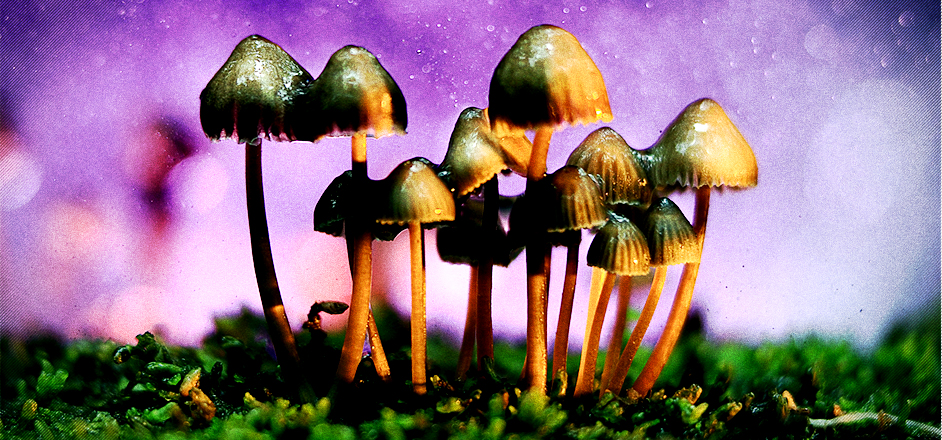Mushrooms make walls melt and the trees shimmy.
And they make you happy.
Science is starting to catch on, and a European startup recently announced that it's about to start testing psilocybin — the main active ingredient in mushrooms — as a way to cure depression. It's a global attempt to use a hippie drug for a real problem, and a major step toward legalizing the drug for medical purposes. Eventually, you'll be able to use mushrooms if you have a doctor's prescription.
Yes, mushrooms really are the new weed.
The psilocybin trials will start in early 2018. They'll happen across Europe, in the Czech Republic, Finland, Germany, the Netherlands, Norway, Portugal, Spain and the UK.
This seems like a huge development. Because you have to buy shrooms out of an idling van in a parking lot, it can seem like they are super-illegal, forbidden and wrong. But the Psychedelic Renaissance is happening now making it so the drugs that helped spark the Sixties resurface, this time for good.
Steve Jobs and Bill Gates have even said they used LSD to improve their brains. And so now society is starting to look at mushrooms differently.
The company doing this newly-announced research project, Compass Pathways, has big names and big money behind it. One funder is Peter Thiel, co-founder of PayPal, a first investor in Facebook, and big-time Donald Trump supporter. Two others are billionaire bitcoin evangelist Michael Novogratz and movie producer and CU Boulder alum Sam Englebardt.
See: smart people do drugs.
Europe isn't the only place testing mushrooms for different maladies. It's shocking how many clinical trials have been going on for mushrooms, just in America. Mushroom studies have been approved for:
-
Alcohol addiction.
And many other troubles.
Bringing up the question: why go to the doctor anymore when you can just trip out?
Just kidding. Research is showing that mushrooms aren't a medicine the way Prozac is. They don't just pump your brain with neurotransmitters. They rejigger your relationship to the world and yourself.
"Under psilocybin … there is an ability to step out, to step back, like an astronaut who goes up into space all of a sudden can see the whole of the Earth and then thinks, 'Why was I worrying about this or that?'" Dr. Robin Carhart-Harris, one of the world's leading researchers on psychedelics, says in a video for Compass Pathways.
Astronauts, in fact, call this the Overview Effect. From the Space Station, human problems of love and death fade against the blue of the ocean and the blackness of the void. Astronauts weren't the first to realize this. The stoics — ancient philosophers — visualized themselves from above every morning, to see how small are their problems. And Buddhists meditate on seeing themselves from the outside.
Mushrooms can give you these effects, without a rocket ship, an ancient philosophy class or a week in a monastery.
"[Mushrooms] allow the mind and the brain to operate, really, in a more expansive way," Carhart-Harris says.
Brain scans show mushrooms work in two ways. First, they reduce blood flow in the part of the brain that gives you your ego, your sense of control. Meanwhile, they connect brain parts that aren't normally connected. It's like your brain is normally an orderly but unhappy schoolroom; mushrooms give the teacher a few hours off, and lets the kids talk for a minute. When the teacher comes back, the kids work together better.
There's lots going on today with mushrooms, often called the world's safest recreational drug. There are legalization drives in Oregon and California, mushroom retreats in Jamaica, and crazy stories about mushrooms changing people's lives.
The days are coming when mushrooms won't be seen as society-destroying, but enhancing.
As long as all the walls don't melt.




Leave a Reply